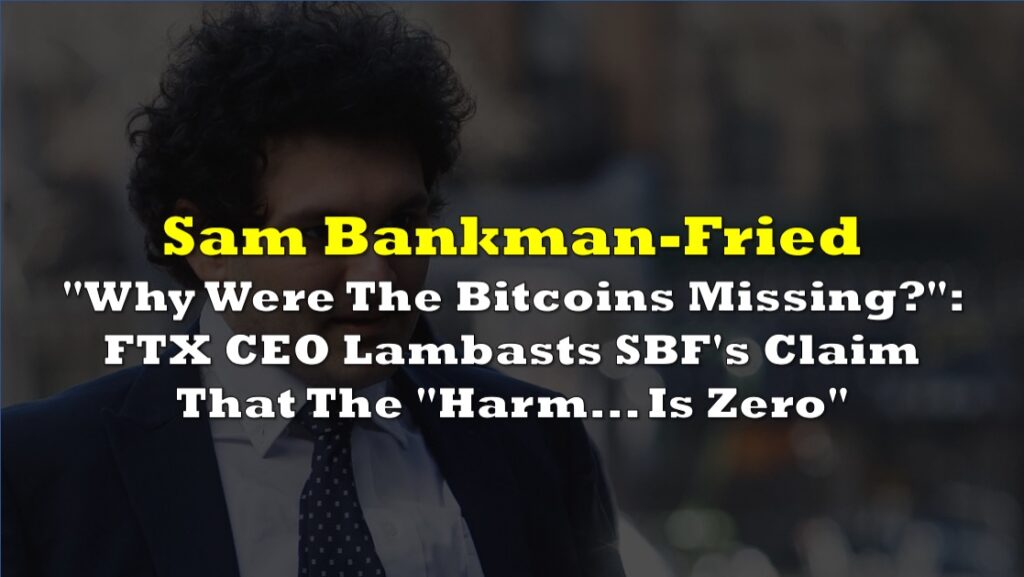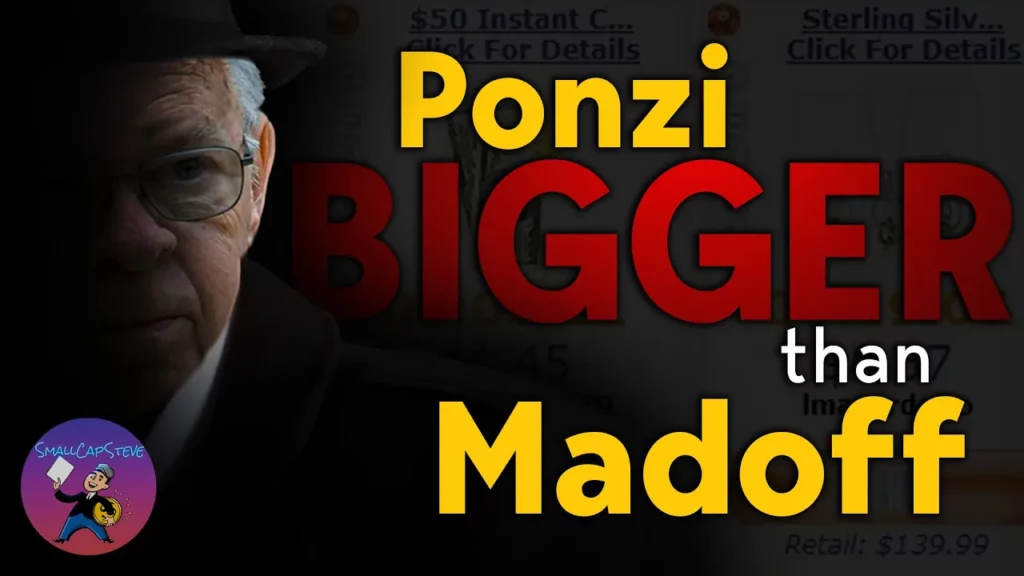In the illustrious world of self-proclaimed investment gurus, few figures cast a longer shadow than Kevin O’Leary. This Canadian entrepreneur, famed for his role as a judge on Shark Tank, has spent years cultivating an image as a sophisticated investor, commanding the awe and trust of his audience.
Like Tony Robbins or Gary Vaynerchuk, Kevin is in the business of telling you he’s great at what he’s doing, and not actually doing what he says he’s great at. O’Leary’s shtick has been to transform his brand into a profit-making machine by selling himself as a financial authority.
Yet, his recent debacle with the now-bankrupt cryptocurrency exchange FTX paints a very different picture—one of a scammer using his own credibility to hawk ill-fated investments. Kevin says that the failure of FTX cost him between 10 to 18 million dollars when the exchange went bust. But it’s important to note, he’s admitted to being paid $15 million to promote FTX, a number that many speculate online is closer to $18 million when you include a tax gross-up. In a turn of events that would leave most people’s reputations in tatters, O’Leary seems to have emerged from the wreckage largely unscathed.
He’s managed to spin the FTX fiasco as just another loss for a fearless capitalist who is now prepared to find answers and is demanding the government do something about all these scammers.
Despite being absent from CNBC for months, getting roasted on The Daily Show, and even shedding tears over a new watch on TikTok, O’Leary continues to attract an audience that seems to revel in the spectacle of the grift.
So buckle up, folks, because today we’re diving deep into the bizarre world of Kevin O’Leary, where even the most disastrous investments can be spun into pure gold.
Kevin’s foray into crypto
“Mr. Wonderful,” has had quite the rollercoaster relationship with cryptocurrencies. According to Motley Fool, in 2017, Kevin started buying Bitcoin, only to turn around and call it a scam in 2019. But just like a chameleon changing its colors, he disclosed his crypto positions in 2020 and shifted the investment focus of his personal brand to a cryptocurrency champion.
This sudden pivot came after spending a decade positioning himself as a dividend investor.
The irony here is thicker than the tension in the air when Mark Cuban hovers over the Dallas Mavericks’ bench during a timeout, micromanaging the coaches, hoping to gain the love of the fans.
@kevinolearytv A watch that makes grown men weep. Specially designed 1 of 1 AP Royal Oak Openworked. #kevinoleary #watches #luxurywatches #luxury
♬ original sound – Mr. Wonderful
Damage control on CNBC
Now, shortly after the FTX scandal, Kevin decided he better go on the “Mr. Wonderful Damage Control Tour: FTX Edition”
But before we get into that, let’s make sure you are aware of what happened to FTX in a nutshell. As mentioned earlier, FTX was a trading platform for cryptocurrencies that was later exposed as a massive fraud stealing billions of dollars from crypto users.
Kevin was paid over $15 million to promote it.
Instead of admitting his mistake and returning the $15 million to creditors, O’Leary dug in his heels and initially defended FTX’s founder, Sam Bankman-Fried. During a U.S. Senate hearing, he even suggested that FTX failed due to a conflict between FTX and Binance, conveniently shifting the blame away from SBF.
And as we learned more about the failure of FTX, Mr. Wonderful has been dodging responsibility like a seasoned politician. He made an appearance on CNBC’s “Squawk Box” to address the scandal and displayed unyielding loyalty that would make a Hufflepuff proud.
Kevin O'Leary gets fact checked by CNBC in real time. pic.twitter.com/eAUN1poWNn
— Citizen Free Press (@CitizenFreePres) December 16, 2022
This appearance was cringe TV. It was as if, that morning, the CNBC hosts realized that all of Kevin’s appearances on CNBC talking about FTX, was him scamming them by running a commercial during squawk box segments for a multi-billion dollar fraud.
So, you might be wondering how deep O’Leary’s loyalty to Sam Bankman-Fried runs. Well, brace yourselves, because our buddy Kevin told a YouTube show called Crypto Banter that he would still invest in good ol’ SBF, despite the scandal.
Kevin, continuing on his media reputation tour, went to the Daily Show with guest host Hasan Minhaj, where he was roasted so perfectly, he emerged medium-rare with grill marks and a side of truffle butter.
O’Leary angers the tweeters
In the midst of all the damage control, he tweeted something that got people riled up about what a sociopath he is, suggesting that people prioritizing work and monetary success over family is the key to freedom.
Twitter got super worked up over it.
Kevin then used the anger people had towards his tweet, as an opportunity to hop on CNN and Fox News, to defend his wealth-centric philosophy.
You may lose your wife, you may lose your dog, your mother may hate you. None of those things matter. What matters is that you achieve success and become free. Then you can do whatever you like.
— Kevin O'Leary aka Mr. Wonderful (@kevinolearytv) February 11, 2023
O’Leary effectively stated, “You guys just don’t get it, man. It’s called entrepreneurship. And if you’re uncomfortable with that idea, well… you’re just un-American. What are you, a commy or something?”
Brilliantly he says something ridiculous, gets real estate on all our social media timelines, and then uses it to get appearances on mainstream media. All while crafting an image as America’s favorite sociopathic capitalist you all love to hate.
The rise to fame
Now you might be wondering how Kevin rose to fame in the US and has become a regular household name. Well, it all started when he hopped across the border from Canada, where he was already flexing his venture capital muscles on Dragon’s Den and hosting Squeeze Play or some CBC version of it with Amanda Lang.
But let’s face it, folks, Kevin’s Canadian conquests were just a warm-up for the big leagues. Enter Shark Tank, ABC’s answer to Japan’s Tigers of Money and the Commonwealth’s Dragons’ Den.
Premiering in 2009 with a whopping 4 million viewers, the show’s lineup of investors took a bit of fine-tuning. Mark Cuban stepped in for Kevin Harrington during Season 2, and Lori Greiner made her way from guest to main cast member by Season 4.
As Mr. Wonderful’s popularity grew, Kevin swam into the CNBC waters, ramping up appearances in the mid-2010s. It was around this time that he made an ill-fated appearance on Bill Maher’s Real Time, armed with nothing but his cell phone and a seemingly endless supply of smugness.
This little stunt didn’t exactly endear him to the host, but hey, there’s no such thing as bad publicity, right?
Kevin’s previous failings
Which of course brings us to the recent events. But FTX wasn’t Kevin’s first scandal.
Let’s start with the Learning Company (TLC), for instance. Originally founded as SoftKey Software Products in 1983, it was snatched up by Mattel for a cool $3.8 billion in 1998. Unfortunately for Mattel, the only thing they acquired was a money pit, which led to Kevin’s swift exit from the company.
And who could forget the O’Leary Funds Management saga? In 2008, Kevin launched this money management firm that promised financial products for retirees and Baby Boomers. While he wasn’t even licensed to manage or invest other people’s money, Kevin managed to grow the company to $1.5 billion in assets under Connor O’Brien’s watchful eye.
So the man can raise money, but how about investing it and managing it?
Well by 2012, the company’s assets plummeted to $1 billion, and then further down to a measly $800 million when Canoe Financial swooped in to save the day. And let’s not even get started on O’Leary Mortgages, which collapsed after only two years, in 2014.
Look, Kevin can raise money, no one is doubting that, but as a custodian of capital, you might be better off handing your money over to Jordan Belfort.
MindMed & WonderFi
Of course, I am a Canadian small-cap investor, so I have to touch on Kevin’s recent Canadian Junior stock involvement.
In recent years, he has been involved with two notable Canadian small-cap plays: MindMed, a psychedelic company focused on mental health, and WonderFi, a fintech firm dabbling in the crypto space.
MindMed was created with around 166 million shares at 10 cents based on the RTO filing on Sedar. When the stock went public it traded sideways for a bit and then soared from under 50 cents to over $7 on a pre-rollback basis. But alas, today, the stock is down roughly 97% from its all-time highs or around 50% over the last three years.
The former CEO of the company, JR Rahn, sold a massive chunk of his stock after the company listed it on the NASDAQ – not exactly a ringing endorsement for a “real” company doing “real” things, huh?
On the other hand, we have WonderFi, created with 15 million shares issued at a jaw-dropping 0.002 cents. The stock initially traded at around $1.50 after going public, but has since taken a nosedive, currently down about 93% from its all-time highs, or around 90% if we’re still playing with those arbitrary 3-year endpoints.
Despite this, WonderFi managed to acquire CoinSmart in a deal to create what they claim will be Canada’s largest crypto platform.
I guess the juries are still out?
Both of these companies were aggressively promoted and managed to raise tens of millions of dollars. Again, Kevin can raise money. No one is denying that.
While MindMed did give retail investors a shot at riding the wave to make some money, WonderFi has been more of a Hindenburg-esque disaster for any open market retail investor who dared to dip their toes in.
Now, we don’t know exactly how much of the cheap stock in either of these companies Kevin directly or indirectly held, or how much he has sold. But one thing’s for sure: his foray into Canadian Junior stocks has been everything you would expect out of a guy who shamelessly embraces capitalism to a point where he acts like an angry loser on investments he didn’t even pay for.
In conclusion
Studying Kevin O’Leary is a masterclass in the art of spinning failure into success.
Kevin has reached a level on the investment guru mountain that the Robert Kiyosaki’s and Mark Minervini’s dream of. Kevin has an uncanny ability to weather scandal after scandal, only growing stronger and more influential with each new controversy.
He’s like the Donald Trump of the investment world, where adversity serves as fuel for his ever-growing empire. The Donald once said, “I could shoot somebody and not lose voters.” Kevin seems to have this gift with a certain class of investors. Specifically, newbie retail investors who want to get rich and are too lazy to do an due diligence.
Whether he’s raising millions for dubious ventures, shedding tears over watches, or perpetuating his image as the world’s most shameless capitalist, Kevin O’Leary is nothing if not persistent. The man is a social media maestro, a master manipulator of perception, and a human embodiment of the flaws in capitalism itself. He’s the Tony Robbins and Gary Vaynerchuk of investing—great at telling us he’s great, not so great at actually being great.
So where does that leave us? Well, Kevin O’Leary isn’t going anywhere anytime soon. In fact, it’s entirely plausible that in five years’ time, he’ll be an even bigger household name, with a slew of even more outrageous scandals under his belt.
So buckle up and get ready for the ride, because as long as there’s a spotlight to be hogged and money to be made, you can bet Mr. Wonderful will be there, grinning from ear to ear, and shamelessly cashing in on every scandal that he stumbles into.
Information for this briefing was found via Wall Street Journal, Twitter, Bloomberg, and the sources mentioned. The author has no securities or affiliations related to this organization. Not a recommendation to buy or sell. Always do additional research and consult a professional before purchasing a security. The author holds no licenses.









